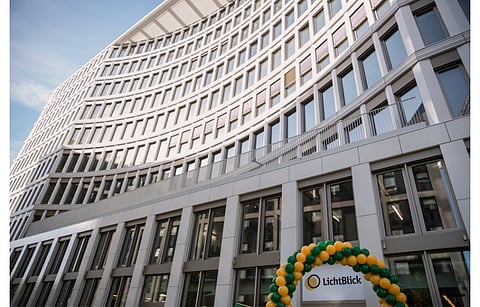

Calling the decision to skim off proceeds from their revenues in the name of financing relief from high energy prices for households and companies a 'wrong instrument', German energy service provider LichtBlick along with 25 other solar, wind and biomass operators have filed a legal complaint against the federal government, demanding to end the skimming with immediate effect.
Represented by law firm Raue, the team has filed a complaint with the Federal Constitutional Court saying the skimming violates professional freedom and property guarantee of the companies involved. In a LichtBlick commissioned October 2022 report, Raue called the move illegal (see EU Renewables Revenue Cap 'Illegal', Says LichtBlick).
"It makes sense for the federal government to relieve households and companies in view of the high energy costs. And it makes sense to involve power generators in financing the relief," explained LichtBlick's Chief Lawyer. "However, the skimming of proceeds is the wrong instrument. It violates the basic rights of the companies skimmed off and slows down the energy transition. An excess profit tax, such as that levied by the oil or coal industry, would also be the appropriate and legally secure way for green electricity producers."
According to the complainants, the legislator is skimming off fictitious income from electricity producers without taking the expenditure into account. For individual power plant operators this can lead to skimming amounts even higher than the revenues, depending on the wholesale prices. It is 'unlawful' to not limit the skimming off proceeds to actual financial needs, they claim.
"In many cases, the intervention means that solar and biomass systems in particular cannot continue to be operated economically or entire business areas are threatened. The market for direct supply contracts (PPA) collapsed for the levy period," says LichtBlick.
Here's a quick recap of the events that have led to this legal complaint. Acting on the guidance of the European Commission (EC) to cap revenues of infra-marginal producers at €180/MWh temporarily to bring down elevated energy prices in times of limited electricity supply, German government introduced the levy with the Act on the Electricity Price Brake (StromPBG).
Following this, the revenues of clean energy operators are being skimmed off since December 2022, according to LichtBlick.
Even though Germany does not plan to extend the levy beyond June 30, 2023, renewable energy generators call it a 'fundamental constitutional question' and want its immediate repeal. Adam said "Skimming off the proceeds is a serious political mistake that must not be repeated. With tax law, the state has a strong and sufficient instrument to involve companies in the financing of public tasks," added Adam.
While the German government finds itself in a legal tangle for the move, other European Union nations too have followed suit. In December 2022, the Dutch government capped revenues of power generators to €130/MWh with proceeds to be collected retroactively once the decision becomes legally binding (see €130/MWh Ceiling Revenue For Dutch Power Producers).
.png?w=50&fm=png)